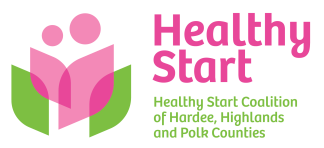Journey of Parenthood:Millennials have often been criticized for various reasons, from being labeled entitled to being mocked for their lifestyle choices. However, one thing millennials deserve credit for is normalizing therapy and openly discussing mental health struggles. This openness has made us more aware of how parenthood affects mental health, and many parents today feel overwhelmed.
For many parents, the mental health crisis is a daily reality. Even if they aren’t struggling themselves, their children might be. Parenthood today comes with numerous challenges, including dealing with infertility, prenatal depression, postpartum anxiety, fear of public spaces, burnout, and intense anger. These problems highlight the importance of mental health support for parents.
Prenatal Depression and Anxiety
Prenatal depression and anxiety, though not frequently discussed, impact 10-25% of expecting parents at some stage during pregnancy. These symptoms can emerge at any time and affect anyone, although individuals with a history of mental illness or complex pregnancies face a heightened risk.
Symptoms include excessive worrying, intrusive thoughts, changes in appetite, difficulty concentrating, fatigue, insomnia, feelings of sadness, decreased interest in activities, withdrawal from loved ones, mood swings, and less interest in sex. Many of these symptoms overlap with ordinary pregnancy experiences. If diagnosed with prenatal depression or anxiety, treatment options include therapy and certain medications. Support groups, lifestyle changes, and stress-reduction techniques can also help manage symptoms. Early intervention and support are crucial for the well-being of both the parent and the baby.
Postpartum Mood Disorders
Postpartum mood disorders have gained increased attention over the years, and for good reason. About 85% of new parents experience some form of mood disturbance during the postpartum period, ranging from the standard “baby blues” to severe conditions like postpartum psychosis.
Common diagnoses include postpartum depression, anxiety, obsessive-compulsive disorder (OCD), post-traumatic stress syndrome (PTSD), and postpartum psychosis. For some, low-dose anti-anxiety or antidepressant medications may be sufficient, while others may require intensive therapy and a combination of drugs for improvement.
If considering medication, especially for breastfeeding parents, it’s important to have a conversation with your healthcare provider about finding a safe option that can pass through breast milk. This ensures both the mother’s mental health and the baby’s well-being are prioritized.
Generalized Depression
Once your baby turns one year old, you’re no longer considered in the “postpartum” stage for a depression diagnosis. Depression can start at any time, whether your child is one year old or older.
According to the World Health Organization (WHO), around 280 million people worldwide experience depression. Unlike occasional sadness, depression involves feeling down most of the day, nearly every day, for at least two weeks. It includes symptoms such as feeling empty or numb, loss of interest in activities, excessive guilt, and hopelessness. Other signs can include intrusive thoughts, changes in sleep and eating habits, and low energy levels.
Treatment for depression often includes prescription medications to alleviate symptoms, along with psychological therapies like talk therapy, which are commonly recommended.
Generalized Anxiety
Anxiety disorders affect a significant portion of adults in the United States, with over 19% experiencing them. For parents, the stress of modern parenthood, combined with easy access to vast and often conflicting information online, can exacerbate anxiety. Many parents feel overwhelmed navigating through advice from influencers lacking expertise or complex scientific studies they may not fully understand.
Symptoms of anxiety include nervousness, restlessness, or tension; experiencing a sense of danger or panic; physical symptoms like increased heart rate and trouble sleeping; trouble concentrating; gastrointestinal issues; excessive worry; and avoiding triggers. Treatment usually includes medication and therapy to help manage these symptoms effectively.
Burnout
Many parents frequently struggle with parental burnout, characterized by emotional exhaustion, detachment, and diminished fulfillment due to the constant demands of parenting. A study in 2022 revealed that 66% of working parents met the criteria for burnout, and by 2023, 49% of mothers reported feeling burnt out. Symptoms include extreme fatigue, ongoing stress, withdrawing from children, and feeling unfulfilled in the role of parenting. Left untreated, burnout can lead to severe consequences such as thoughts of escape, self-harm, or neglecting children. Although taking a break isn’t always feasible, therapy and self-care are crucial for managing burnout. If depression or anxiety are also present, discussing medication options with healthcare providers may be beneficial.
Loneliness
Loneliness has been considered an epidemic by the U.S. Surgeon General as of May 2024, highlighting a decline in social connections and quality friendships among adults, with nearly half reporting three or fewer close friends in 2022. Parental loneliness, affecting about one-third of parents, differs from general loneliness and can profoundly impact both parent and child mental health. Many parents experience weakened friendships after having children, often only reconnecting once their youngest child is at least five years old. Addressing loneliness requires active effort, starting with therapy to discuss feelings and develop strategies for building new connections despite challenges like childcare responsibilities. Professional support plays an integral part in navigating these difficulties.
Social Anxiety
Social anxiety in parenting can be challenging, particularly in managing complex social interactions while simultaneously parenting. Symptoms may include excessive worry about embarrassing oneself or being judged negatively, avoidance of social situations, and fear of physical symptoms like sweating or trembling. Therapy is crucial for developing coping strategies and improving social interactions.
Fear of Public Spaces
Fear of public spaces among parents in the United States often arises due to concerns about gun violence, a leading cause of death for children in the country. This anxiety, which can be associated with agoraphobia, significantly affects daily life. Effective ways to cope include supporting sensible gun laws and seeking treatment for social anxiety through therapy and, sometimes, medication. Finding a therapist who provides unbiased care is crucial for managing and reducing stress related to public spaces and safety concerns.
Trauma
Many parents may face various forms of trauma beyond typical scenarios like assault or loss, including collective trauma such as the aftermath of a pandemic. This can compound with challenges from shifts in human rights and political decisions, impacting both parental and child mental health. Seeking therapy is essential to address trauma symptoms, with potential treatments like medication for associated depression or anxiety. Parents should recognize their mental health needs and seek support from organizations like the National Alliance on Mental Illness, which provides guidance and community connections.
Parenthood is filled with challenges like prenatal anxiety, postpartum adjustments, and the stress of burnout. At Healthy Start, we’re here to support you through these hurdles. Whether you’re grappling with loneliness, anxiety in public spaces, or the aftermath of trauma, we offer practical solutions and resources to help you find balance and well-being. Reach out today to access therapies, medications, and community support that can make a real difference in your journey as a parent. Your mental health matters, and we’re committed to helping you navigate parenthood with confidence and resilience.

